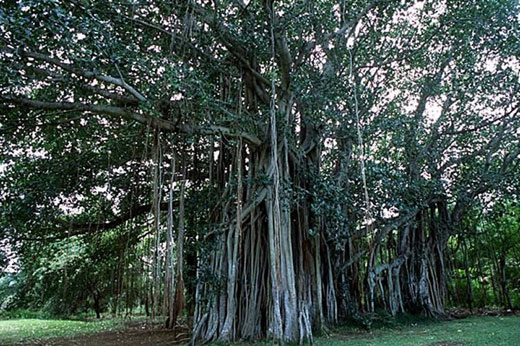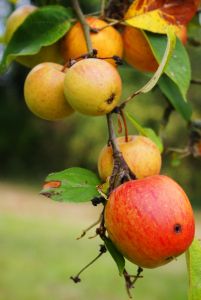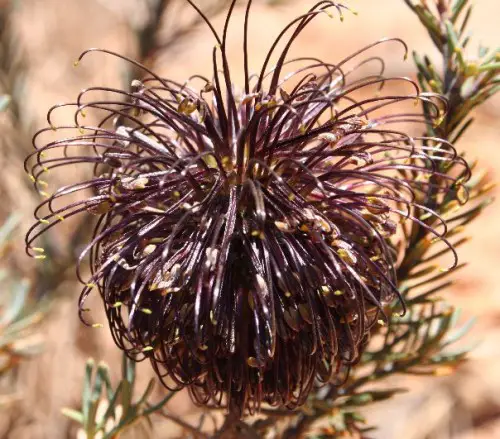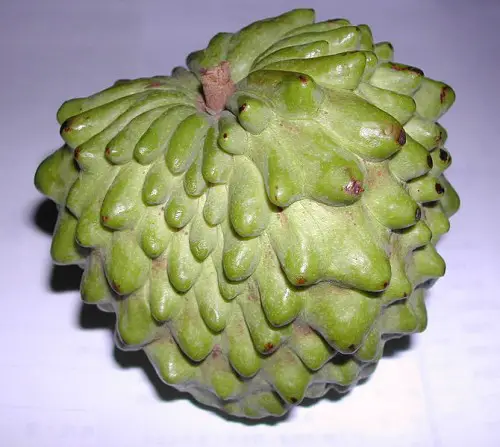Calvaria Tree
The Calvaria Tree is a perfect example of the impact man can have on the environment without being aware of what we do.
The Calvaria tree is a long lived hardwood, existing only in certain parts of the world, specifically the island of Mauritius where the hapless Dodo bird once made its home.
The DODO, a large flightless bird was native to Mauritius and lived there quite peacefully until sailors and settlers began to arrive.
Because the Dodo was flightless, it built its nests on the ground and the young, as well as their eggs were victimized by the feral dogs and pigs that were introduced by the settlers, while the adult Dodo, being “tough and stringy” was still a source of meat that could not get away readily and being about the size of a modern turkey was filling.

Calvaria Tree
Whether the settlers or their animals took the greatest toll isn’t truly known but what is known is that within a scant hundred years of their being found, they were extinct.
Unfortunately that’s not the end of the story.
Around 250 years later, a scientist discovered that the Calvaria tree, native only to Mauritius was doing poorly. Because it was a tree of such longevity, it hadn’t been discovered until it was nearly too late to save it. Those trees which were left, numbered about 13, and new ones were not growing.
The older trees were dropping seeds, but they were not sprouting.
There was hypothesis that it was because the Dodo, eating the fruits of the tree, then wore down the outside area of the pit, permitting it to sprout.
With the Dodo bird gone the seeds did not sprout so readily and the trees themselves were in danger of extinction.
Whether this is true, or the deforestation by the settlers accounts for the endangerment of the tree is truly unknown, but in either case, the hand of man accounts for the loss of one species and for nearly costing the loss of another.
Turkeys, it was discovered could eat the fruits and cause the germination of the trees as well.
The Calvaria, or tambalacoque tree has since begun to recover.



Do you have any more of them.My name is Jordan please get back to me and please tell me more about.
i think it is a wonderful tree on earth.
How tall does this tree grow?